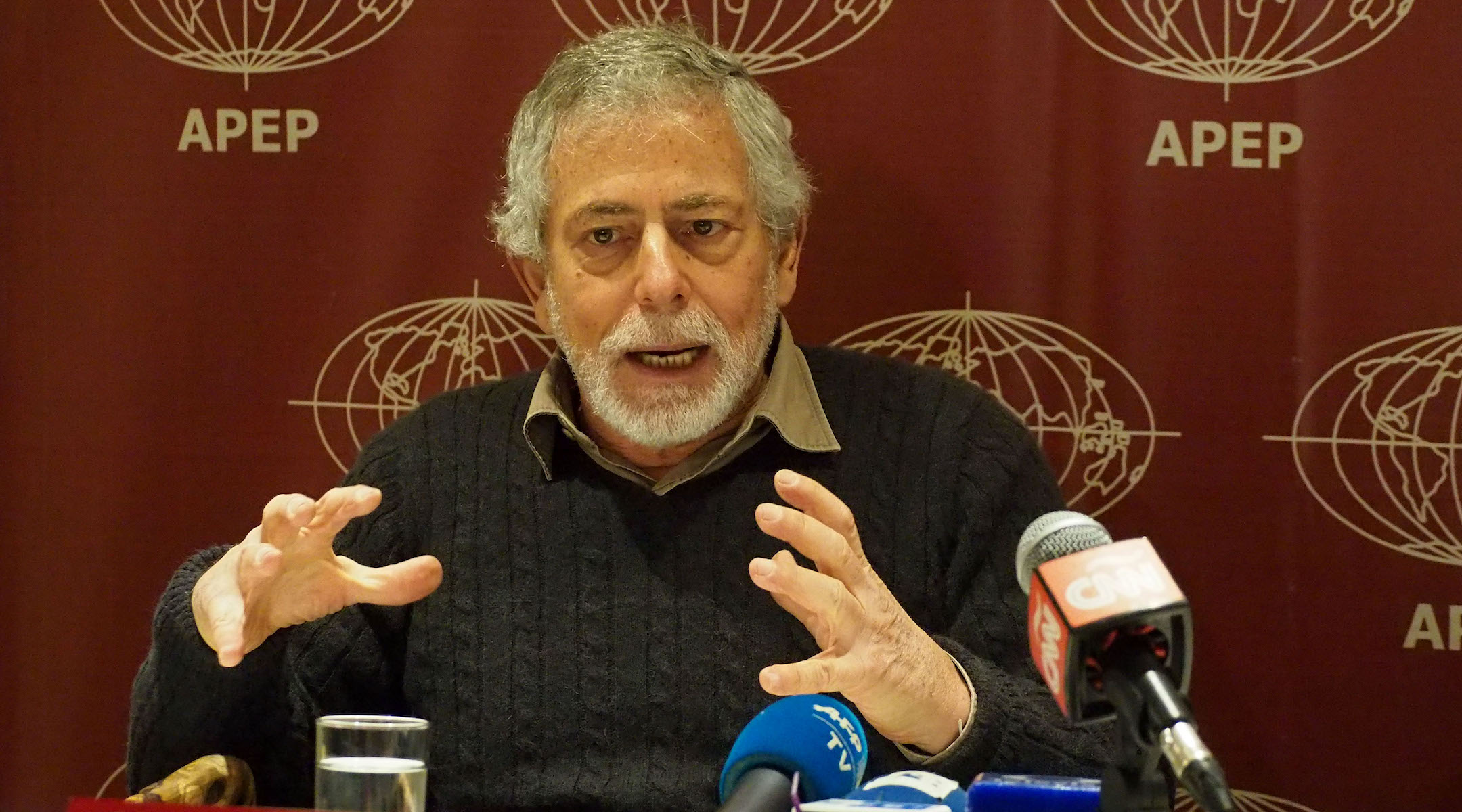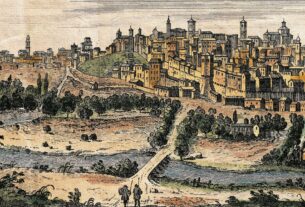LIMA, Peru (JTA) — Right-wing extremist protesters have targeted Gustavo Gorriti, a prominent Peruvian-Jewish journalist, harassing him with antisemitic chants and posters outside of his home over his website’s investigations into police violence stemming from the country’s ongoing unrest.
Jewish and non-Jewish organizations have defended Gorriti since around 30 people protested in front of his home in Lima last Tuesday, holding signs depicting him and one other non-Jewish journalist as rats holding bags of money. Videos posted to social media also show some of the protesters shouting antisemitic slogans, such as: “We will continue visiting this Jew, his days are numbered.” Others shouted “Gorriti isn’t Peruvian, he’s Jewish.”
According to the Committee to Protect Journalists, the protesters were part of La Resistencia, “an extremist right-wing movement whose leaders had published Gorriti’s address on social media and encouraged followers to harass him.”
Peru has been embroiled in a political crisis since December, when the left-wing former president, Pedro Castillo, attempted to dissolve Congress and unconstitutionally rule by decree. He was promptly impeached, and his vice president, Dina Boluarte, was sworn in as his successor. Many Peruvians, especially low income citizens and those of Indigenous heritage, oppose the new government.
Widespread protests — ranging from rallies to attempts to take over airports — have continued unabated since December. While the majority of the protest activity has been peaceful, Peru’s military and police have also resorted to violence on multiple occasions. At least 49 protesters and one police officer have been killed as a direct result of the protests.
On Feb. 12, the news website IDL-Reporteros, where Gorriti works as editor in chief, published an investigation into some of the deaths in Ayacucho, a southern city that has been a protest hotspot. The investigation found that some of the protesters killed by police were innocent; one was killed while assisting someone who was injured, while another, a 15-year-old, was not part of the demonstration. The team of journalists said some of the police killings could be classified as “extrajudicial killings.”
Gorriti, who rose to fame in the 1980s through reporting on Peru’s government, founded IDL-Reporteros in 2009. He has been the target of antisemitic harassment before from a range of critics, including a former Peruvian president.
In a 2005 interview, Gorriti spoke about his Jewishness.
“I am agnostic and I don’t like religious rituals. However, I identify with the vision of Judaism, which is to feel a great history that beats within oneself,” he said.
Jeffrey Radzinsky, a Peruvian-Jewish lawyer and political analyst, said that although La Resistencia is a fringe group, antisemitism in Peru is “something shared in both ideological extremes,” not only the far right. He gave the example of Vladimir Cerrón, a former leftist governor who has tweeted about “Peruvian-Jewish powers.” Gorritti’s news organization has previously reported on Cerrón’s antisemitism.
On their website, IDL-Reporteros condemned the harassment as “anti-Semitic” and noted that this is the fourth episode of attacks against the news organization and against Gorriti in the past 36 days.
On Saturday, the Jewish Association of Peru communal group released a statement condemning the attacks on Gorriti.
“We emphatically reject the harassment and threats laden with anti-Semitic racism that a group of people recently carried out in front of the home of journalist Gustavo Gorriti,” the group wrote. “Freedom of expression is one of the essential values of our society. Our country has a climate of polarization, and Peruvians need to look for spaces of dialogue and understanding, for which it is essential to eliminate racism and physical and verbal violence.”




